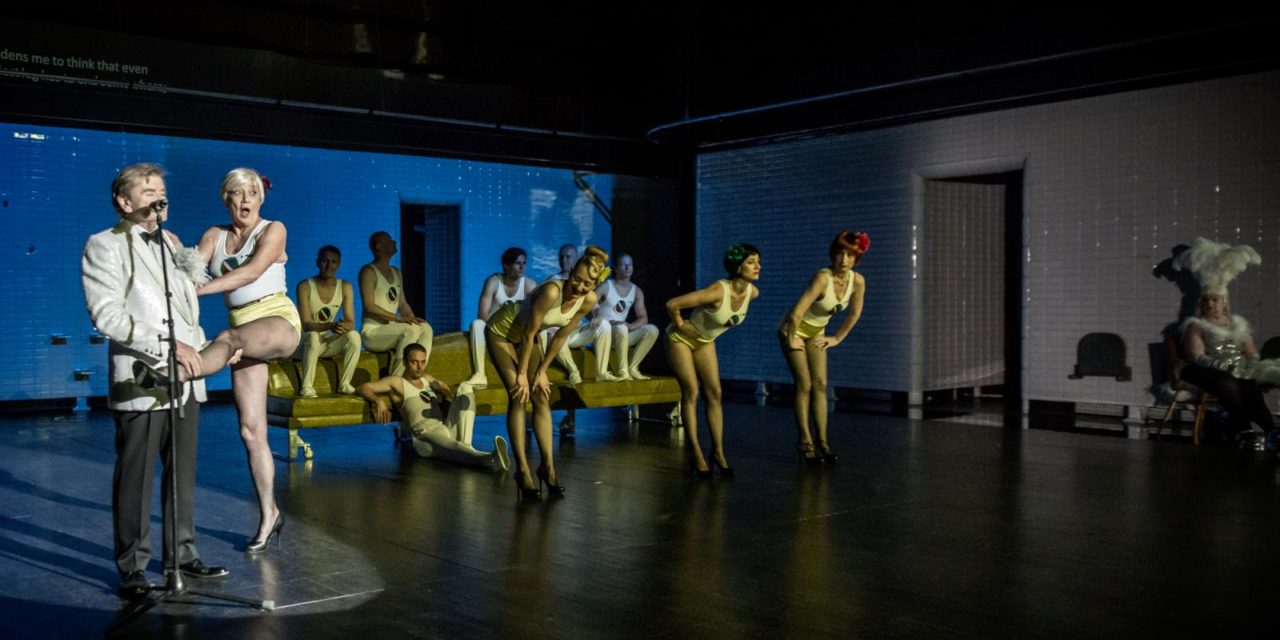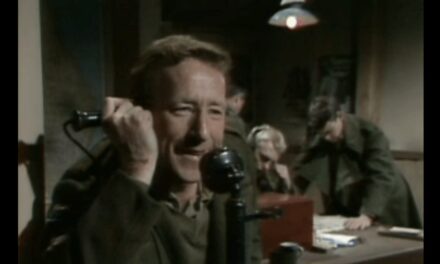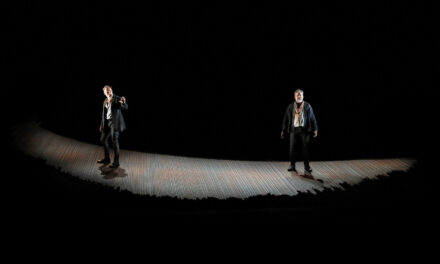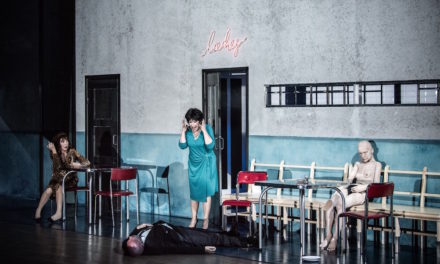In Poland, the emergence of a public dialogue on alternative sexuality was first and foremost framed by conservative anti-homosexual attitudes that found their legitimation in Catholic doctrine. Terminology such as ‘closet’, ‘coming out’ and ‘homophobia’ only arrived belatedly around 1998. Against this background, Polish theatre director Krzysztof Warlikowski has had a profound impact on the representation of alternative sexualities across the political spectrum, from accepted coming-out narratives and gay emancipation in his 2007 production of Tony Kushner’s Angels in America (Anioły w Ameryce) to the construction of queer counternarratives that depicted alternative structures of kinship and forms of intimacy in his original adaptation Kabaret Warszawski (Warsaw Cabaret, 2013). Charting the movement between Warlikowski’s two productions, both of which superimpose New York City on top of contemporary Warsaw, will allow me to draw attention to a wider recent shift in cultural focus from gay rights to queer counterpublics.
Warlikowski’s revolutionary staging of Kushner’s Angels in America directly attempted to rectify the lack of a concrete gay emancipatory movement in Poland. Warlikowski’s determining staging provoked a new public discourse around homosexuality that allowed for a crucial representational counterdiscourse to the Kaczyńskis’ neoconservative Fourth Republic. He also established a broadly identifiable historical shift in the treatment and perception of homosexuality and HIV/AIDS that was in sympathetic dialogue with, and later considered a significant component of, the ‘rainbow revolution’– a manifestation of Polish gays and lesbians who protested against conservative Catholic groups and the loss of privileges granted to citizens across virtually the rest of Europe. Superimposing the New York of the 1980s over Warsaw at the turn of the millennium, Kushner’s attack on Ronald Reagan functioned as a stand-in for Warlikowski’s caustic critique of the Kaczyńskis’ blatant opposition to liberal pluralism and their own particular brand of neoconservatism that combined notions of cultural exclusivity and superiority with Christian values and a championing of the free market. Angels in America gave explicit form to a possibility of a theatre that did not attempt to universalise specifically gay identities but focused on their visibility as an expression of their particularity.
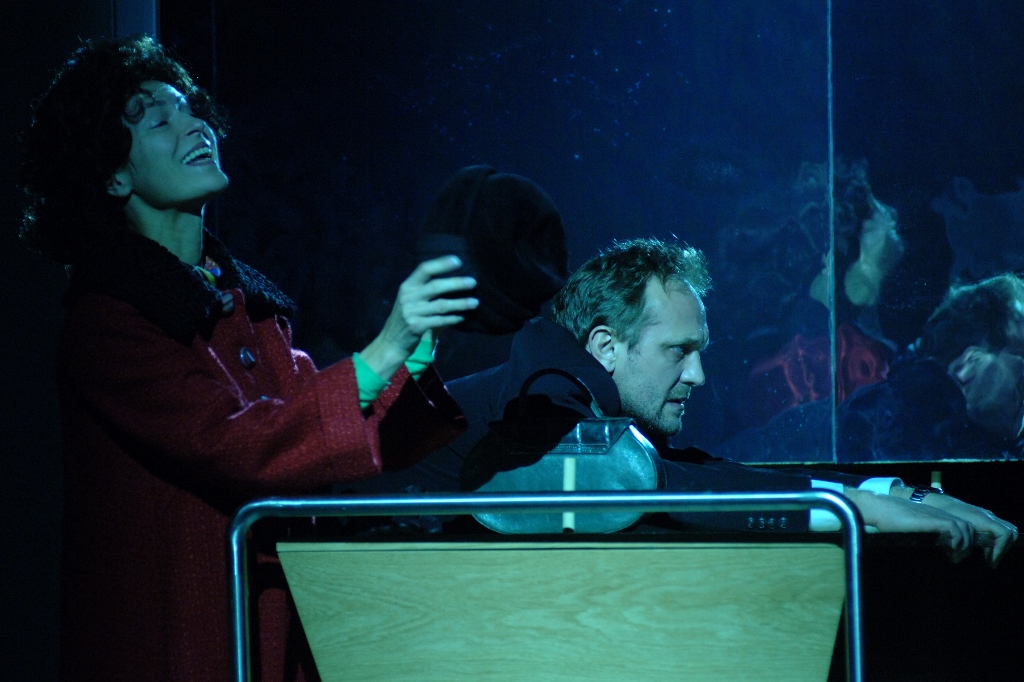
Tony Kushner’s Angeles in America. Directed by Krzysztof Warlikowski, 2007
TR Warszawa in co-production with Comédie de Valence Centre Dramatique National Drôme-Ardeche, Maison de la Culture d’Amiens – Scene Nationale and TNT – Théatre National de Toulouse – Midi-Pyrénées. Press photo
Warlikowski expertly collided black humour with irony, fantasy, and absurdism in his critique of modern sexual relationships. Angels in America owed a great deal of its force to the score composed by Adam Falkiewicz. The sound, reminiscent of Antony Hegarty, was described as ‘shy, fearful, in hiding’ (Cyz, 2008), reflecting the anxiety of full disclosure experienced by the closeted characters. Roy Cohn, the infamous lawyer responsible for the execution of Ethel Rosenberg, for example, refuses to identify himself as homosexual. Cohn sees himself as a heterosexual who happens to have sex with men. Cohn is a mentor to Joe Pitt, a young Mormon lawyer who in one climactic scene phones his mother in Utah in the middle of the night to reveal his sexual orientation. Until this point, the word gay is never mentioned. Reviewers were preoccupied with this coming-out scene not only for the precision of the acting skill displayed by Maciej Stuhr (Joe Pitt) but also for the admittedly troubling connection insinuated between American Mormons and Polish Catholics. Jacek Poniedziałek, who played Louis Ironson, and also translated the play into Polish, corroborated this correlation, claiming that Kushner’s representation of Mormons obsessed by the Ten Commandments was similar to the radically-minded listeners of the ultra-conservative Radio Maryja (St. Mary’s Radio).
Angels in America also confronted the absence of a public discourse on HIV/AIDS in Poland. The first recorded performance to deal with the subject, as late as 2005, was Maciej Kowalewski’s Miss HIV, based on a real-life beauty contest held annually in Gaborone, Botswana. In the play the contest, in which all the participants are living with the virus, is supported by the country’s government in an effort to promote tolerance and reduce the stigma attached to HIV. Significantly, the five contenders of various ages and social classes were heterosexual women, thus challenging the received perception of HIV as a disease exclusively contracted by homosexuals and drug addicts. Kowalewski used HIV as a conceptual tool to comment on the media’s hypocritical treatment of illness in general, exploiting subjects it purports to bring to light, sponsor or protect. For Warlikowski, HIV/AIDS was an important lens through which to critique nationalism. Despite many reviewers’ focus on themes such as forgiveness, tolerance and compassion in Angels in America, the director was adamant that the crucial problem in the play was the depiction of a healthy lover living with an AIDS patient. When Prior Walter appears in a stupor at the end of Millennium Approaches wearing a crown of thorns and a purple robe this directly engaged the image of Christ’s Passion for Polish audiences. Cultural commentator Rafał Węgrzyniak (2009) has argued that the Passion is virtually absent in the work of the younger generation of Polish directors, likely the result of widespread progressive secularization and the ongoing culture war between conservative Catholics and progressive liberals. Warlikowski troubled the legacy of artists as transmuters of Polish Romanticism and threatened the conjunction of national identity with heterosexually-bounded Catholicism. By making the disease the enemy around which Poles could rally, Warlikowski complicated a tendency that implicitly participates in the idealization of heteronormative and nationalist exclusionary identity formation.
Warlikowski suggested that, amidst the changes occurring in the country, Warsaw increasingly became a forum for rebels and queers in Poland. Certain reviewers were convinced that Warlikowski’s mapping of New York onto Warsaw made for a convincing coupling. Others were only perfunctorily interested in this geographical and temporal conjunction. There is no question that Warlikowski’s performance provisions a visual vocabulary actively shaping language and ways of thinking about the world that – while not being hostile towards – are not necessarily in accordance with the politics of Kushner’s authorial agenda. Though somewhat irritated by the camp or sickly sentimental Americanisms, they paid more attention to the play’s interculturally transposable themes. There were, however, other conflicts between the American and Polish contexts. Kushner categorically condemns Ronald Reagan, who is valourised in Poland as ‘the slayer of communism and champion of free markets,’ and there is a barely concealed overlap between Reagan and Lech Kaczyński in this adaptation. In an attempt to make the cultural crossover more evident, a television positioned at the front of the stage showed news from Warsaw cut with panoramic views of New York City. Fictional and authentic news stories were interspersed, their conjunction articulating the world that is not entirely conditioned by the local Polish contexts or globalised American politics.
Queer publics
Warlikowski’s next major production to deal with queer identities and the cultivation of an oppositional consciousness was Kabaret Warszawski (2013). If Angels in America foregrounded the visibility of gay men within a clearly defined coming-out narrative, Kabaret Warszawski offered a critique of identity politics that rejects minoritising concepts of the subject by eschewing singular sexual identities (gay) in favour of anti-identitarian energies (queer). Angels was also Warlikowski’s last attempt to stage a single text: two moments of artistic force spawning from heightened political tension are contrasted: the dissolution of the Weimar Republic in Berlin and the aftermath of 9/11 in New York City. The juxtaposition between these cities and historical moments revealed existing phobias in contemporary Warsaw. The first half of the performance was a revision of John van Druten’s 1951 play I am Camera based on Christopher Isherwood’s Berlin Stories, germane in its associations with the recent resurgence of neo-fascism in Central and East Europe, while the second part adapted John Cameron Mitchell’s 2006 Shortbus, a film that depicts a group of New Yorkers who meet weekly in a utopic salon where sexually diverse practices and normally controlled libidinous desires can be freely enacted. The impetus for this production resulted from a growing wave of aggression Warlikowski and his ensemble recognised in the extreme right in Poland. Influenced by Polish artist Artur Zmijewski’s video installation Democracies (2007-12), a series of thirty short films which document various manifestations of political activity in public space such as protests, rallies and parades in which anti-Semitic and homophobic feelings erupt on a mass scale, Warlikowski’s project mirrors Zmijewski’s belief that culture is a dialectical field for political thought and action rather than a stable set of moral values and traditions.
Using conventions of cabaret allowed Warlikowski and his ensemble to break the fourth wall and engage the carnivalesque as a means of providing a space for self-determination that promoted personal contact with the audience. Beyond simple good-humoured fun, appropriating the specific form of cabaret from Weimar Berlin was a productive tool to embody scathing anti-normative critiques of ultra-rightwing movements that merged art with power, magnifying new forms of extremism and their means of justification. Warlikowski merged the Nazi dictatorship with the American dream and the mass commodification of culture through projected images of the opening ceremony of the 1936 Berlin Olympics, which revealed participation and implicit collusion on an international level as many teams performed the Hitlergruß, the infamous Nazi salute. Fascism and globalised consumerism were again paired in the emblem of the swastika, which was inscribed on costumes of the cabaret dancers in the bright red and blue colours that form the Pepsi-Cola logo.
In Sally Bowles’ raucous song and dance routines, Christopher, van Duten’s protagonist based on Christopher Isherwood, succumbs to an authoritarian father figure, symbolized by a buffoonish Hitler, who is himself an elated spectator at the cabaret. This depiction of Hitler reflects feminist Agnieszka Graff’s warning that economic stagnation in Poland has produced a crisis of masculinity, a generation of young men frustrated with the democratic system who are targets for non-democratic slogans. The reinforcement of masculine heroism in Poland in the twentieth century was understood as the only mode in which to build horizontal trust amongst young men in the ongoing struggles against occupying forces. Graff argues that this process of engagement today is radicalising young men to the far right, which is resulting in the increase of a fascistic climate. Subverting the typical portrayal of Hitler as a menacing or forbidding personage in exchange for a lighthearted and friendly father figure with strong, but down-to-earth views made his current appeal plausible. Moreover, the performance style of cabaret places primary significance on sexuality, presenting bodies on stage that undermine gender cohesion and amplify popular homophobic and misogynistic beliefs through humour and parody. The repetition of Hitler’s clownish gestures provided a critical distance that revealed the perverse underlying temptation for an embattled straight white masculinity. The fact that Hitler takes pleasure from watching the cabaret that mocks him only further illustrates the elasticity of contemporary liberal democracy in accommodating such neo-fascistic positions.
Warlikowski has commented that there are no longer homosexual themes and ‘gay’ characters in his work, but rather performative attempts to subvert hegemonic culture. Jacek Poniedziałek’s performance as Justin Vivian Bond, the New York-based transgendered performance artist, strategically enacted a trans identity that continues to be even more taboo than homosexuality in Poland. Bond is a member of the Radical Faerie movement, a countercultural network that embraces new-age spirituality and promotes queer paradigms beyond hetero-imitation. In Kabaret, Bond’s appearance is reminiscent of Ariel in Warlikowski’s 2003 Tempest – an impish and erotically charged presence that breaks strong cultural norms. The multivalent erotic energies in the adaptation of Shortbus signal the absence of a sexual revolution in Poland, which has made it difficult to establish alternatives in public discourse outside of the nuclear family fetishised by the Church. Warlikowski continued this deconstruction of the standard heterosexual nuclear family in Kabaret. The physical relationship established with the audience through eye contact and physical touch, the sharing at one point of a marijuana joint and a concurrent use of the audience seating area as performance space created a mutual co-presence between performer and spectator that was affecting, temporal and inclusive. It is fair to argue that Warlikowski’s explorations of cultural alterity have established a new category of an audience in Poland.
This post was written by the author in their personal capacity.The opinions expressed in this article are the author’s own and do not reflect the view of The Theatre Times, their staff or collaborators.
This post was written by Bryce Lease.
The views expressed here belong to the author and do not necessarily reflect our views and opinions.

